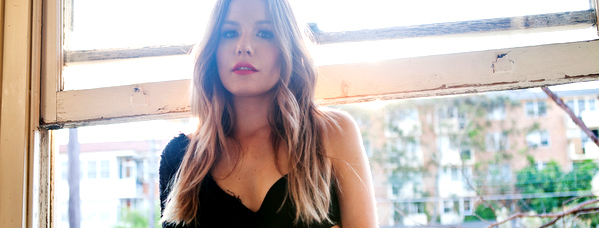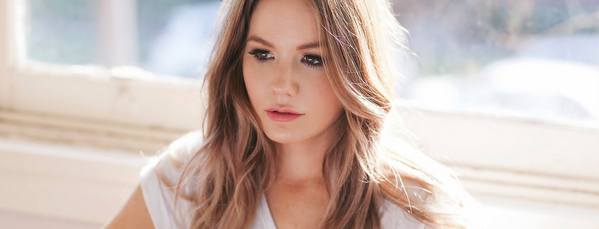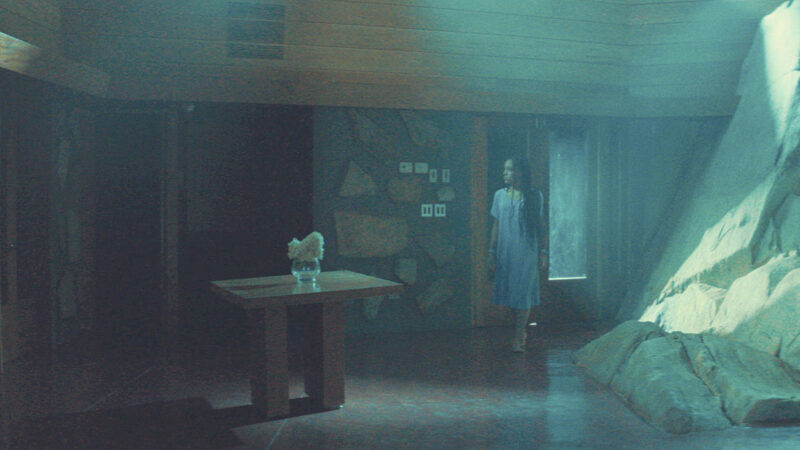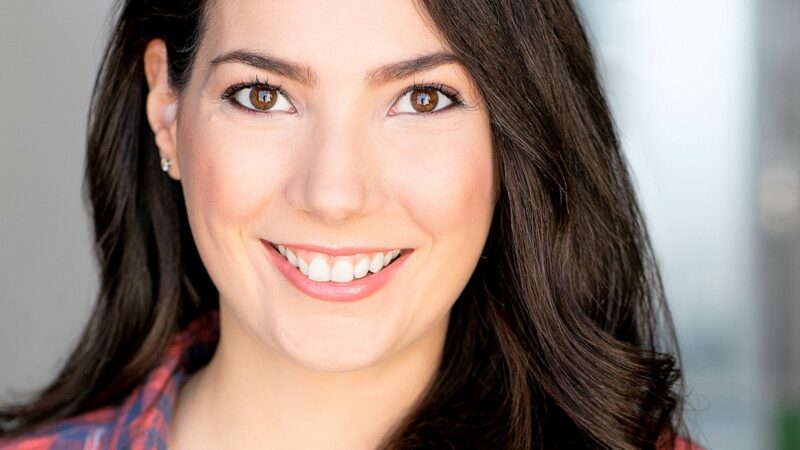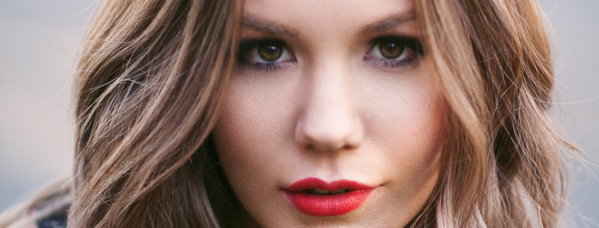
Kya Stewart is an Australian Actor. She was born and raised in Sydney, where she continues to live, work and study. Kya has had an array of experience in the industry with professional work in both Film and Television.
She just recently landed the Lead Female Role in Indie Feature Film ‘Tampon’, written and directed by Guy Moore. The Film is currently in Pre-production. The first time Kya ever step foot onto a stage was when she was just seven years old. She was playing the role of the King in The Christmas Story. She knew there and then, at just seven years old that she wanted to be an Actor. It was the most amazing feeling for her to be out on that stage. She will never forget it. She still gets the same feeling today when she is acting.
When she isn’t working or studying, Kya enjoys watching movies, hanging out with friends and going to the beach. She is currently a Freelance artist who looks forward to gaining Agency representation next year. Kya looks forward to a successful year in 2016.
Loving my new photo’s by the amazingly talented Kayleigh June! What do you think? #actor #photography pic.twitter.com/6QKVr8bRRs
— Kya Stewart (@stewart_kya) October 18, 2015
Did you study acting
I have studied acting at a number of different schools and with a number of different teachers throughout my life. At the moment I am continuing my study of the Meisner Technique and do a lot of training and work on my own. I first started Acting when I was seven and participated in school plays and drama classes all the way through Primary School and High School. I represented my High School at State Drama twice and was awarded the High Achievers award in drama in my Higher School Certificate. Acting has been a part of my life for a long time.
I have been fortunate enough to train with some of the best acting coaches in Australia. I have studied with the likes of mentor, friend and Hollywood Actor, Luke Ford, NIDA graduate, Actor and co-founder of the Sydney Screen Acting Group, Sam Haft. And the Artistic Director of the Siren Theatre Company, Kate Gaul. Luke, Sam and Kate have all been an inspiration to me and have helped me in one way or another to believe in myself and to follow my dreams.
I completed a number of different courses over the years at many other schools also including The Australian Film and Television Academy, the Actor’s Centre Australia and the National Institute of Dramatic Art. I try to gain experience when and where I can. I think it’s important to train at different Schools and with different teachers. Everyone has there own way and will teach you something different not only about acting, but also about yourself also.
I am incredibly excited for an upcoming workshop that I am taking with acting coach Anthony Wong, to learn the fundamentals of the Chubbuck Technique. I have heard incredible things about him. It’s up to you to take what you can from each teacher and technique, and to implement it into your skill set in a way that works best for you, as an individual.
What acting technique do you use
I am trained in the Meisner Technique developed by Sanford Meisner. I first came into contact with the technique three years ago where I studied at The Actor’s Pulse Studio in Sydney. The technique came highly recommended to me by an Actor friend, and at the time I hadn’t studied much in terms of a specific technique so I thought that I would try it.
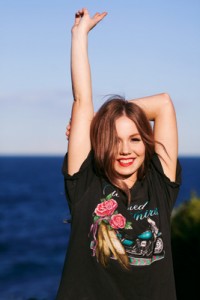 The Meisner Technique has been a game changer for me and for my acting. It has helped me open up so much as an artist. My acting has never felt more free or truthful, as the technique teaches you to live truthfully in the given circumstance and to work organically off the other Actor using your impulses.
The Meisner Technique has been a game changer for me and for my acting. It has helped me open up so much as an artist. My acting has never felt more free or truthful, as the technique teaches you to live truthfully in the given circumstance and to work organically off the other Actor using your impulses.
I highly recommend the Meisner Technique to any Actor. It will truly help you to open up and to ‘own’ your emotions, actions and behaviour within a scene. “Acting is living truthfully under imaginary circumstances”- Sanford Meisner
How do you keep fit as an actor
There is so much more to acting than someone who has never done acting, might think. Acting can take a great toll on your body both physically and mentally, so you have to do your best to keep a clear mind and to stay strong. You have to look after yourself.
It is very easy to ‘get into your head’ as an Actor, and to be self-destructive as we are often very critical of ourselves and of our work. I know that I was for a long time, but have learnt to harness this over the years.
I do my best to embrace my mistakes and to pick myself up quickly and with a smile. It can be hard, but you have to take the challenges for what they are and know that despite the ‘failures’, you are inevitably getting better and strengthening yourself as an Actor. I didn’t always think this way, but I think with experience, self-awareness and maturity, you are able to bounce back better, quicker and smarter.
I think it’s important to keep up your training and attend classes regularly. They can be expensive, but I learnt you can do your own work in your own time too when money is tight. At the moment I am attending classes but also going to a studio where I film self tapes and watch my work back to see where my acting is at, what I am doing well and where I can improve. It has been a big help. You can do this at home too, in your bedroom. With your phone. You can get really creative. It’s great.
I find reading helps too. It keeps my mind active and it keeps me learning constantly. I have read more books in the last year then I have in my life. I love it. I read screenplays, autobiographies, and acting technique books.
Any material that has something to do with the industry can be so beneficial and contribute hugely to your development. I read as much as I can. You can learn so much from inspirational stories on other Actors too. They are the best for helping you stay motivated and faithful. I watch inspirational movies as well. I was watching interviews with Will Smith the other night on YouTube. He is a very hardworking and inspiring man. Watch some of his stuff.
 I cut drinking out of my life also about a year ago and I have never felt better. I still like to let my hair down occasionally, but only when it is called for and only if I have no acting commitments. If I have a role coming up, no matter how small, you will definitely not find me drinking or partying for weeks or even months before it.
I cut drinking out of my life also about a year ago and I have never felt better. I still like to let my hair down occasionally, but only when it is called for and only if I have no acting commitments. If I have a role coming up, no matter how small, you will definitely not find me drinking or partying for weeks or even months before it.
I guess it sounds boring, but once you get used to it, you really thrive on how great you feel and it’s just too important to avoid any unnecessary clouding in acting, so I avoid alcohol almost altogether. Don’t get me wrong, I think it’s important to still have fun and socialise. As Actors we imitate people and situations. You can’t do this without experiences and without having fun, but in moderation.
I am very busy in between work and study, so I treat myself to simple things like watching a movie, going to the beach, having coffee with a friend. It’s really important for me to have downtime. To connect with myself. You have to be really in tune with yourself as an Actor. You are forever learning about yourself. The little things that we often take for granted can keep you really happy. And sane. Haha.
I also like to meditate and do yoga. Both have helped me and my mental strength so much and have helped me find grounding both as a person and as an Actor. They have given me skills that I often use on set when preparing for a scene. I eat as well as I can. Exercise both my body and my mind as often as I can. And stay as positive as I can. Always. No one and especially no Actor can be perfect. I have my bad days and can’t remain focused all the time, but acting is always in the back of my mind. Most decisions I make will revolve around acting in some way, shape or form.
How do you prepare for a role
Preparation is so important in acting. If you don’t know whom your character is or what it’s like to walk in their shoes, it’s near impossible to play them. Or play them well, anyway. You need to know who your character is, what they want, what their purpose is, what they fear, what they desire, and the stakes of the scene. There’s a lot to it.
 I will read a scene a few times over so I understand what is going on with and for my character then I put it away and think of ways that I can get to know the character. I try to put myself in their shoes. I will research and I might even carry out some experiments.
I will read a scene a few times over so I understand what is going on with and for my character then I put it away and think of ways that I can get to know the character. I try to put myself in their shoes. I will research and I might even carry out some experiments.
I think the best thing to remember and to do is to understand that there is a part of us that can relate to any character. You might not be able to relate to or understand a serial killer, but there will have been a time in your life where you can recall feeling so unbelievably angry, isolated, out of control etc.
This really helps with preparation at the start I find. You can’t judge your character, but more-so rather, find that part of you or that experience you have had that can take you to a place where you can understand your character or feel what it might be like to walk in their shoes. Once I find this, it triggers a lot of great stuff for me, mostly based on sense memory, I suppose.
Experiment. I spent a night alone once, sober, at a backpackers bar so I could do research for a role. I wanted to find my character and then see how she acted, how she spoke, how she dressed. Luke Ford taught me that, to experiment. I felt a little bit weird and shy at first, creepy even. I was convinced that everyone knew what I was doing but it ended up being really fun though and really beneficial. It’s important to people watch. I do it all the time now.
I make sure that I know who my character is before I learn my lines. Once I know this stuff, I will put the lines into my own words. I will write them out and say them in a way that makes sense to me. The last time I had to learn a Shakespearean piece, I reworded it entirely first so that I could connect with it, understand it. It really helps.
Once I have a clear understanding of the character and their want in the scene, I will learn my lines by rote with no emotion, completely monotone and off by heart. I learnt this through my study of Meisner. I learn the lines like one big monologue of dialogue. No punctuation, just a continuous sentence. This allows me to learn the lines so well, without emotion or judgement so that they are embedded in me. Then when it comes to acting them out in the scene, I can roll them off my tongue without thought and no matter what the other Actor is giving to me on the day, I bounce off them organically. This is the foundation to Meisner. To live truthfully within a scene and to respond based on impulses and behaviour. It really is amazing.
How do you stay fresh on set
I am all about having fun one set. I think it’s so important and I would go mad without having a joke or two throughout the day because I am such a naturally playful person and a bit of a prankster. If am playing a very serious role though that requires a lot of emotional depth and preparation, I will definitely make sure that I take the time I need before a take to get into the zone and to connect with myself and the character. I will come to set ‘full’. There is a time and a place for fun, definitely depending on my role, but a laugh even once we have wrapped is enough to keep me fresh.
If it has been a long day, sometimes it’s nice to step outside just to get some fresh air or to have a coffee. I have been on set for fifteen hour days at times. It can be really tough, so five minutes here and there to myself really helps me stay happy and focused. I need to have time to myself.
Explain one creative choice you took on set
Probably one of the most memorable creative choices that I made on set was when I was working on a short film over a three-day shoot. They were long and tiring days and the role I was playing was very dramatic and took a lot of emotional strength.
My character, Jade, had to yell at her controlling and abusive partner who had been keeping her isolated and prisoner at their farmhouse. I was meant to call out to my fellow Actor and then when he refused to give me the keys to the car so that I could see my Family, I was meant to just give up. Something inside of me told me that I wanted to say more to him though. I wasn’t sure whether to or not because different Directors can respond either positively or negatively to adlib and improvisation, but I went with my gut and instinct and what I thought my character would have said and done at the time in that situation and screamed out to him very angrily and told him that I hated him. The director loved it and at the time, instead of cutting she told me to scream the line, again and again. So I did. They kept the camera rolling. I did it about five times in a row. It was really powerful. It made the final cut.
This was a huge learning experience for me on set that day. To always go with your instinct in a scene. It might not work out, but if it does, you might create absolute magic. You can always do another take if you mess one up, but you can never get that exact moment back if you fail to trust your instincts. You can’t replicate an exact moment, so it’s best to go with it.
Describe a memorable character you played
A memorable character that I played was that of Grace in a Short Film in 2014 directed by Paul Dawkins. The film itself was also called Grace.
Grace was a young woman who had found herself in a bit of a financial pickle and was at threat of becoming homeless. She was a young, successful woman but had made some silly decisions along the way that had put her into a bad financial position. She felt helpless and hopeless and too embarrassed to call on people for help.
I think it really hit home for me about just how lucky we are and how we should never take things for granted. You can have everything one day and nothing the next, so it’s important to be humble and to appreciate having food in our stomach and a roof over our head.
I have done quite a lot of charity work with helping the homeless and even organised my own charity event for the homeless and disadvantaged in Sydney, so homelessness and helping those in need is something I feel strongly and passionate about.
It was a powerful role and a powerful Film. It could happen to anyone. Poverty and homelessness, it’s very sad. You can never judge anyone. You never know what someone has been through. I will always remember Grace’s despair and her desperation. I think about it sometimes. It helps to keep me appreciative for what I have and to keep me grounded.
Amazing workshop with the incredible Anthony Wong! Learning the Chubbuck Technique. Ivana is a genius @ivanachubbuck
— Kya Stewart (@stewart_kya) December 5, 2015
What do you want most from a director
I think what I want from a director most of all is ‘permission’. Obviously a director has a vision, and it is my job as an Actor to bring that vision to life, but if I am able to hit the key elements and points that a director is looking for in the scene and then be given the permission to play, experiment and do the scene in a number of different ways, I think that is one of the most magical things a director can give to his Actors.
Permission to play is a beautiful thing. I think once a director makes it clear that it’s okay to have some fun with it and see where you can take it and that he is flexible, this is a huge gift for an Actor. I want a director who is encouraging and really believes in his vision, and in me, too. If I can see that a director is incredibly driven, passionate and focused, it pushes me even more to work hard and create something wonderful.
What do you want most from an actor
I think above most things, talent included, I want to work with a generous Actor. You can be a talented Actor but if you aren’t willing to ‘give’ to your fellow Actor or Actors in a scene, you aren’t bringing all that you should or can to a production and you can really rob from the final product. Any project is a collaboration. Everyone must be on the same page. We learn in Meisner that it is all about the other Actor in a scene.
I have worked with some very talented Actors, but their egos have gotten in the way. Or they have been very talented, but once they have completed their take, they take a massive step back and only give half of the energy that they gave in their shots in my takes.
I think some Actors think that once the camera is no longer rolling on them, that they can take a step back, stop working as hard and relax. I think the exact opposite. I give 100% to every take, whether I am in front of the camera or not. The performance of the Actor you are working with is a reflection on not only you, but also the entire production to which both your names are attached. I don’t stop giving 100% until the last of the camera tripods are back in the van. Generosity as an Actor is a huge thing. It says a lot about you as an artist, and as a person.
Coming up next on @SkyNewsTonight @ivanachubbuck acting coach to Hollywood’s A-list shares her tales from Tinseltown pic.twitter.com/XXrJ9atGd5
— Sarah Hajibagheri (@SaraHajibagheri) February 26, 2016
What advice would you give to actors
I think the most important thing is to never give up, believe in yourself and stop feeling like you have to explain yourself and your career choices to everyone around you. Everyone has his or her journey. This one is yours. If you don’t want to go out and get a Uni Degree and work in an office, then don’t. This is your life. Do what makes you happy. It sounds obvious, but as you start to get older, you realise who and what counts and how valuable time is. Any time spent not chasing your dreams or not being happy, is time wasted.
There have been times in my life where I have questioned whether or not I should pursue acting, or have doubted myself, but if you love something enough and have a passion for something, you should never give up. I have been sidetracked at times and have given acting a ‘break’, but if something is a part of you, like acting is to me, keep going. If you love it that much, keep going.
You have to believe in yourself. If you don’t believe in you, how can you expect anyone else to? It can be hard, but you have to find the courage. You have to find the strength to be brave. You have to believe in you. I continue my acting journey every day and look forward to what the future holds. Please join me on my journey. I hope to connect with you in the near future. Follow your dreams. Peace.
Briefly write about your career
Look out for Kya in her Lead Role in Tampon.

